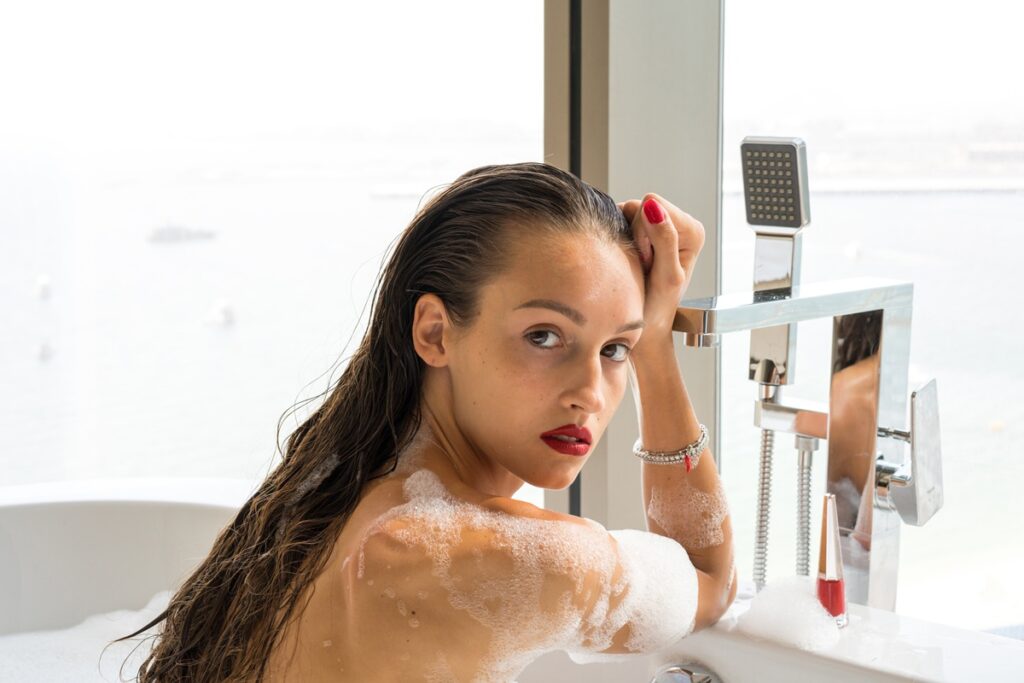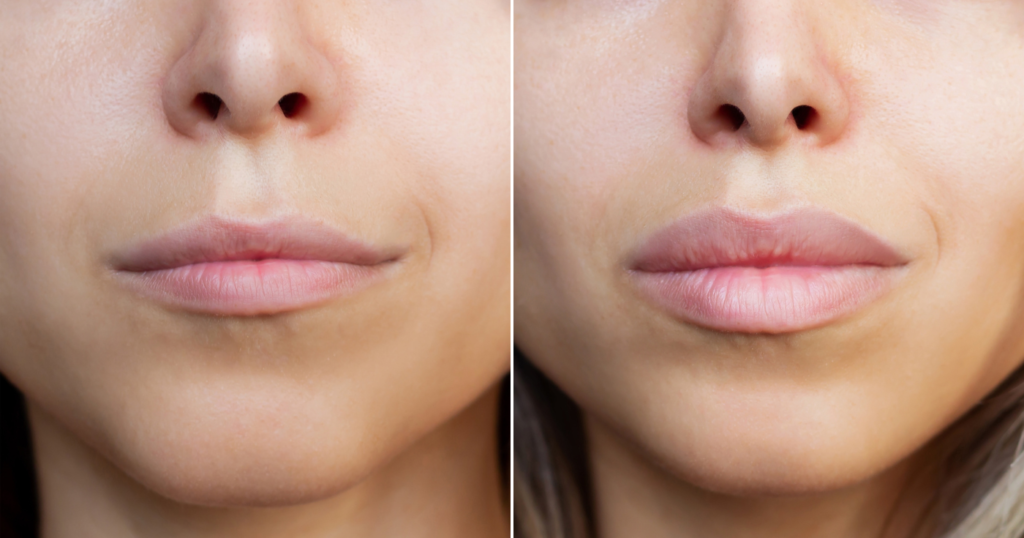We’ve all done it at least once: standing in the shower, letting the water run, watching as the makeup effortlessly washes away. With such convenience, who wouldn’t want to skip the mirror and let the shower do the dirty work? It seems efficient, uncomplicated, and economical at first glance. However, this practice may be more detrimental to your skin than you realize.
For many of us, removing makeup in the shower has become second nature. Mornings can be rushed and evenings exhausting, so we look for ways to streamline our routines. But this seemingly practical habit might come at a high cost for our skin. Dermatologists and skincare experts are raising the alarm: this method isn’t as harmless as it seems.
Hot Water: The Skin’s Worst Enemy
First and foremost, it’s crucial to understand that hot water disrupts the skin’s natural hydrolipidic film. This protective barrier defends against environmental aggressors, and when it’s compromised, we invite dryness, redness, and tightness. High-temperature water can trigger these very issues.
“The use of hot water can dilute pores, dehydrate the skin, and increase sensitivity,” explains dermatologist Florence Poli in Le Journal des Femmes. The skin on your face, being particularly delicate, requires special attention. Unfortunately, in the shower, we often scrub more vigorously, sometimes using products that are not suited for facial skin.
The Major Risk
One of the most significant threats? Using a scented shampoo or shower gel to remove makeup. These products, typically too harsh, are designed for the body, not the face. The result is a skin imbalance that could lead to blemishes over time.
Poor Rinsing and Rushed Steps: Questioning Effectiveness
In the shower, haste is the name of the game. We rinse hurriedly, eyes shut, and assume we’ve done a good job. But that’s false. “Makeup removal requires time and precision, particularly around the eyelashes and eyelids,” warns cosmetologist Valérie Costantini. Unfortunately, these areas tend to be the most neglected in a shower setup.
Certain makeup products, especially waterproof mascaras or long-wear foundations, resist water. Removing them effectively necessitates a specific makeup remover, often oil-based or biphasic. In the shower, these products are either not used correctly or rinsed off improperly, lingering on the skin and causing irritation or small breakouts.
Incomplete makeup removal can clog pores and create an inviting environment for imperfections. Worse yet, it hampers the skin’s ability to rejuvenate overnight, leading to a cycle of dullness and irritation.
What Dermatologists Truly Recommend
Faced with these realities, most skincare professionals agree on one point: makeup removal should take place outside of the shower, in a calm environment, using the right products and gentle techniques. Ideally, you should follow these steps:
- Use a makeup remover suited to your skin type (oil, cream, micellar water).
- Gently massage to dissolve makeup, particularly around the eyes.
- Rinse with lukewarm water, then pat dry without rubbing.
- Apply a soothing lotion or floral water afterward.
This doesn’t mean it’s off-limits to rinse your face in the shower. However, it should never replace proper makeup removal. If you prefer to incorporate a quick method, using a cleansing oil in the shower followed by a cotton pad to remove residue outside of the water is a better option.
In summary, this seemingly harmless beauty habit could sabotage your entire skincare routine. Taking an extra five minutes in front of the mirror isn’t a luxury; it’s essential for maintaining your skin’s glow and health.




